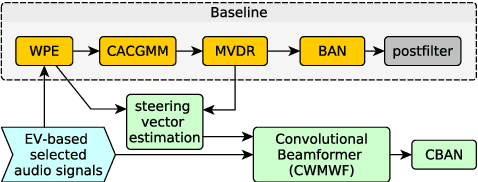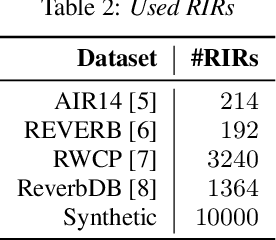Marcin Witkowski
Investigation of Whisper ASR Hallucinations Induced by Non-Speech Audio
Jan 20, 2025Abstract:Hallucinations of deep neural models are amongst key challenges in automatic speech recognition (ASR). In this paper, we investigate hallucinations of the Whisper ASR model induced by non-speech audio segments present during inference. By inducting hallucinations with various types of sounds, we show that there exists a set of hallucinations that appear frequently. We then study hallucinations caused by the augmentation of speech with such sounds. Finally, we describe the creation of a bag of hallucinations (BoH) that allows to remove the effect of hallucinations through the post-processing of text transcriptions. The results of our experiments show that such post-processing is capable of reducing word error rate (WER) and acts as a good safeguard against problematic hallucinations.
BUT CHiME-7 system description
Oct 18, 2023



Abstract:This paper describes the joint effort of Brno University of Technology (BUT), AGH University of Krakow and University of Buenos Aires on the development of Automatic Speech Recognition systems for the CHiME-7 Challenge. We train and evaluate various end-to-end models with several toolkits. We heavily relied on Guided Source Separation (GSS) to convert multi-channel audio to single channel. The ASR is leveraging speech representations from models pre-trained by self-supervised learning, and we do a fusion of several ASR systems. In addition, we modified external data from the LibriSpeech corpus to become a close domain and added it to the training. Our efforts were focused on the far-field acoustic robustness sub-track of Task 1 - Distant Automatic Speech Recognition (DASR), our systems use oracle segmentation.
 Add to Chrome
Add to Chrome Add to Firefox
Add to Firefox Add to Edge
Add to Edge